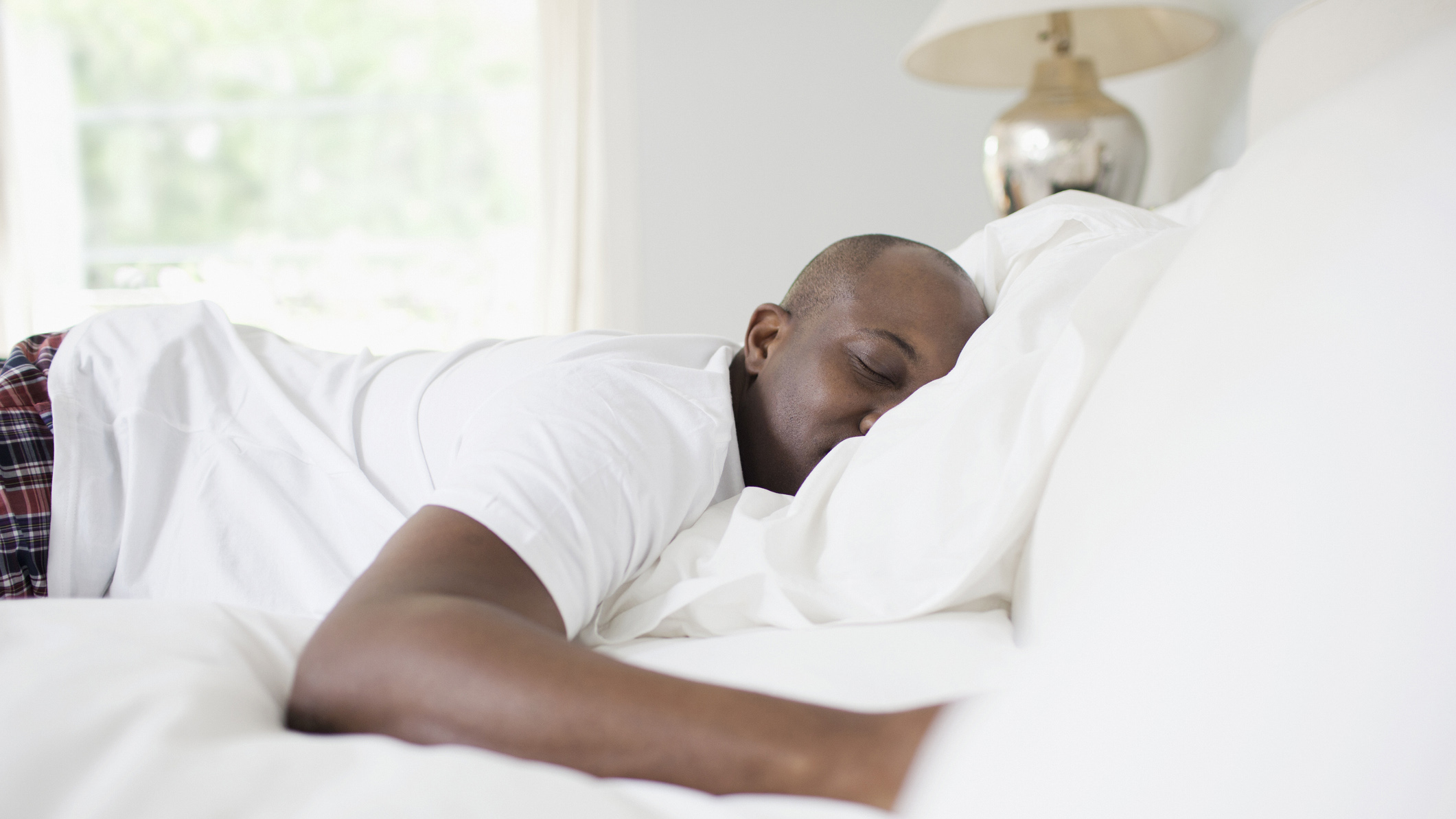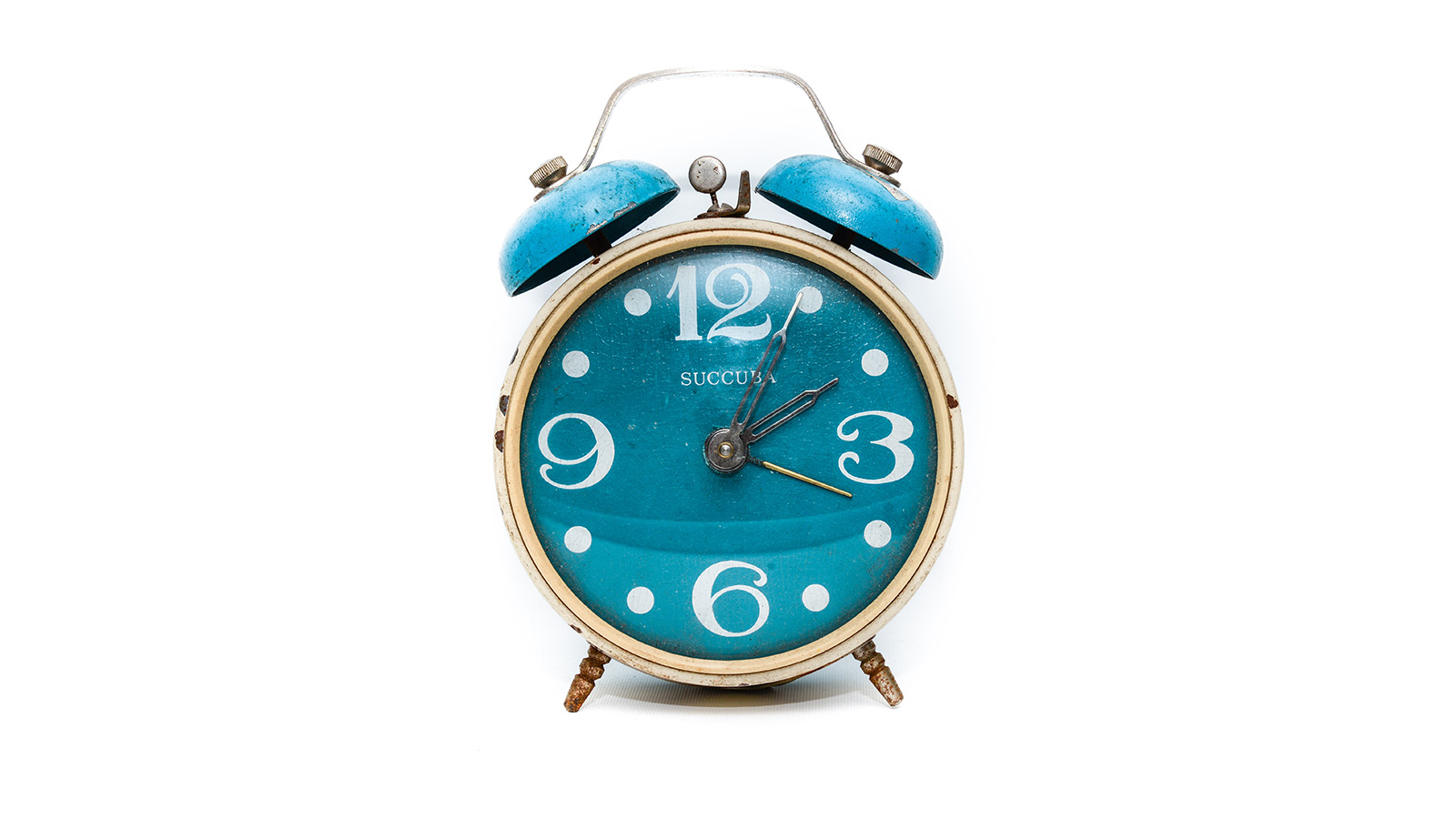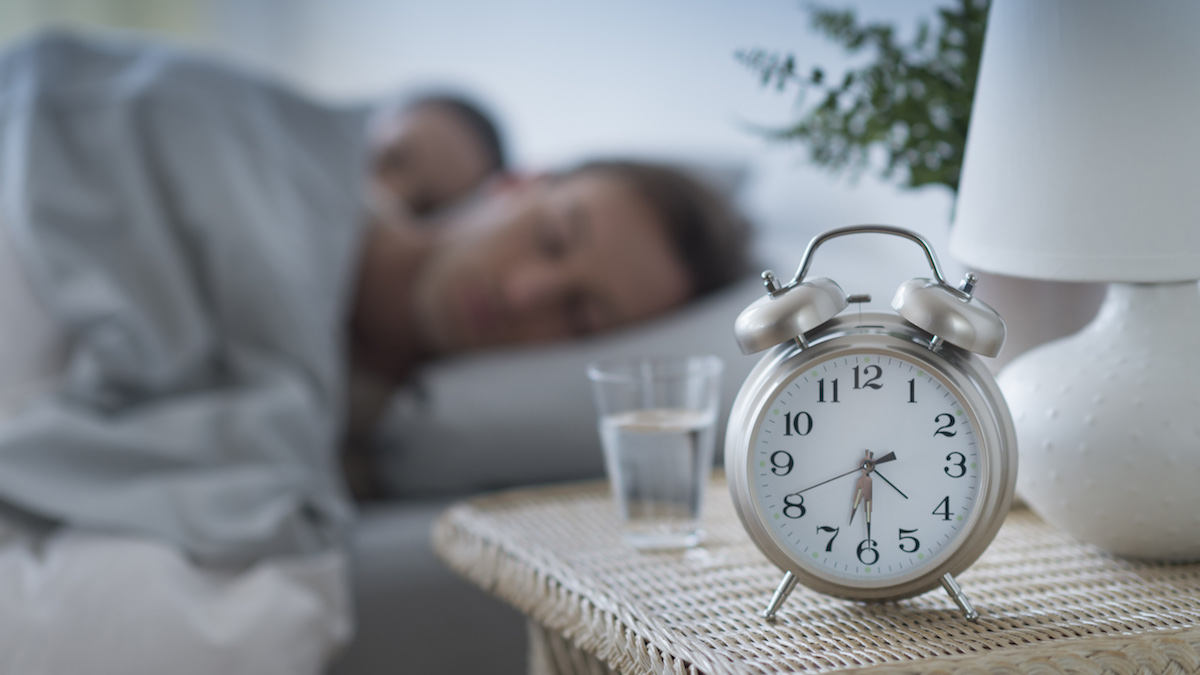If there's one question sleep experts get asked all the time, it's how many hours of sleep do you need to feel healthier, or more energized, or even happier. The thing is, there isn't a straight answer that applies to every person. Your optimum amount of sleep will differ to the next person's, but there are mental and physical health cues you can look for to help you figure out your specific sleep needs.
Here we're looking at how many hours of sleep are enough for the average healthy adult, and how that number changes depending on your age, whether you have any existing health conditions, and what your current lifestyle looks like.
But remember: good sleep isn’t just about quantity, it's also about the quality of your shut-eye and your sleep continuity (how long you can sleep without waking up for long periods). Good sleep hygiene, which includes sticking to a regular bedtime and wake-up schedule, can help with all of this.
If you think what you're lying on could be hindering your slumber, also take a look at our guides to the best mattress online, as well as the best pillows for sleeping.
How many hours of sleep do you need?
The answer to this question is different for everybody because it generally depends on how old you are, whether you have any underlying health issues, and what your lifestyle looks like day-to-day. What’s more, some people just tend to need less (or more) sleep than other people regardless of any of the factors above – it can sometimes be a case of genetics, more than any other factors coming into play.
However, the key factor to determine how many hours of sleep might be enough for you is your age. With that in mind, this is the amount of sleep the CDC recommends each age group to aim for:
- Newborns (0 to 3 months): 14 to 17 hours
- Infants (4 to 12 months): 12 to 16 hours
- Toddlers (1 to 2 years): 11 to 14 hours
- Preschool (3 to 5 years): 10 to 13 hours
- School age (6 to 12 years): 9 to 12 hours
- Teens aged 13 to 18 years: 8 to 10 hours
- Adults aged 18 to 60 years: 7 hours or more
- Adults aged 61 to 64 years: 7 to 9 hours
- Adults aged 65 years and older: 7 to 8 hours
Why eight hours sleep a night is a bit misleading
When we spoke to Dr Lindsay Browning, chartered psychologist, neuroscientist and author of Navigating Sleeplessness about how much sleep the average person needs, we discussed the eight-hours a night myth and where it came from.
“Eight hours sleep is in between the recommended seven to nine hours, so it’s an average," explains Dr Browning. "However it has been taken by people to be this golden thing to get to. And the problem is, if you’re a person who needs nine hours sleep a night but you’re only getting eight, that adds up to a one-hour sleep loss every night. Or if you’re someone who only needs seven hours sleep a night, but you think you should be getting eight because that’s what everyone says is ‘normal’, then you’re going to be trying to sleep for an extra hour every night, you’ll probably be unable to, and then you may end up thinking that you have insomnia."
And this is also an area where a lot of couples struggle. For example, your sleep needs could be on the lower side, while your bed buddy has a higher sleep need. If you both routinely go to bed together and try to get the same amount of sleep, neither of you will be happy.

"It’s really important to look at what your own sleep needs are," advises Dr Browning. "Basically you want to fall asleep relatively quickly (within 10, 15, 20 minutes would be ideal). Waking up for around 10-15 minutes in the night is also completely normal, then waking up around 10-15 minutes before your alarm yet feeling refreshed. That would tell me you’re getting enough sleep and you don’t need to change what you’re doing.
"There are people who have different needs, and seven to nine hours a night isn’t set in law. For example, you might be someone who needs a little less than seven hours or a little more than nine. But seven to nine hours a night is a general guide and science has shown the benefits of sleep lie within that time zone.” We speak to Dr Browning more in our feature discussing why is sleep important for us.
Does your health affect how many hours of sleep you need?
Yes, your health can have a big impact on how many hours of sleep are enough for you in order to help you feel rested and energized the next day. For example, people who are pregnant tend to need more sleep due to the stress that carrying around another little human can take on their body.
According to guidance published by the American Academy of Family Physicians, "Lack of sleep during pregnancy has been tied to a number of complications, including preeclampsia (a serious condition that affects your blood pressure and kidneys)." When writing about sleeping during the first trimester of pregnancy, Sleep Foundation says that your body clock may even shift, prompting an earlier bedtime, or a need for more hours of sleep.
People recovering from illness or injury also tend to need more sleep because their immune system is working overtime to help them heal. If you have disturbed or poor sleep and you don't have an underlying health condition that could be affecting your sleep, look at your sleep hygiene and routine to see if it can be improved. Ultimately, if you have any ongoing concerns about your sleep, it's time to speak with a doctor to pinpoint the issue and to look into suitable therapies or other treatments to help get your sleep back on track.
Why do people need a certain amount of sleep each night?
When you're asleep, your body gets to work repairing your muscles, organs and other cells. This is also when your brain processes what you’ve learned during the day and gets rid of what it doesn’t need – this might be why if you don’t get enough sleep you experience 'brain fog' the following day.
A number of processes are going on in your brain as you move through the three different stages of sleep. In sleep cycles of roughly 90 minutes (on average), you'll move through light sleep, deep sleep and dreaming sleep (REM). Most adults will have around four to six of these 90-minute cycles most nights, depending on how much sleep they need. This is why getting enough sleep for you is essential, as you don’t want to miss out any of these vital stages, especially deep sleep.

As well as ensuring you get enough sleep for your age, there are also health risks attached to sleeping too much on a regular basis. According to Web MD, consistent oversleeping has been linked to a host of serious health issues including diabetes, heart disease, and increased risk of death.
Although sleeping in now and again isn’t a concern for the vast majority of people, if you’re regularly sleeping more than the CDC-recommended time, you should chat to your doctor about whether you might be at risk of any underlying health issues, or have an undiagnosed illness such as depression.
When is the best time to go to sleep?
There’s lots of debate about when is the best time to go to sleep. However, many experts suggest it’s down to your genetics and whether you’re a night owl and feel more energized at night, or you're more of an early bird, which means you feel most ‘alive’ first thing. Going to bed earlier won’t help if you’re going to feel fidgety and not sleep until after midnight anyway, so pay attention to your sleep drive in the evenings.
However, studies have shown that keeping a consistent sleep schedule – that means waking up and going to bed at the same time each morning and each night, even on weekends if you can manage it – is much more important than when you go to bed.
What are the signs of sleep deprivation?
So, how do you know if you are getting enough sleep? Any there any mental or physical signs or symptoms to watch out for? According to guidance published by the Sleep Foundation, there are a number of signs to look out for that could suggest you’re sleep deprived, and these include:
- You feel tired throughout the day
- You find it difficult to concentrate
- You feel stressed and irritable
- You experience mood swings
- You have high blood pressure
- You tend to get sick often
- You have a low sex drive
- You yawn a lot throughout the day
If you’re not getting enough sleep, try to adjust your schedule so you get at least another hour of rest each night to see whether that makes a difference. You might need to address your pre-bedtime habits too, such as creating a calm and comfy bedroom environment, and blocking out light that could wake you from sleep. If external noises keep you awake, explore using a sound machine to mask noises.
Learning how to relax your mind and body before sleep will also help you, so try to learn some sleep relaxation tips, such as breathing exercises or journalling your worries and thoughts earlier in the day, or using one of the best handheld massagers to unwind tense muscles before bed.
Ready to upgrade your bed? Then also take a look at guides to the latest Purple mattress deals and discounts, as well as this month's Casper mattress deals, and the best Saatva mattress discounts and deals for Sleep Awareness Week.

